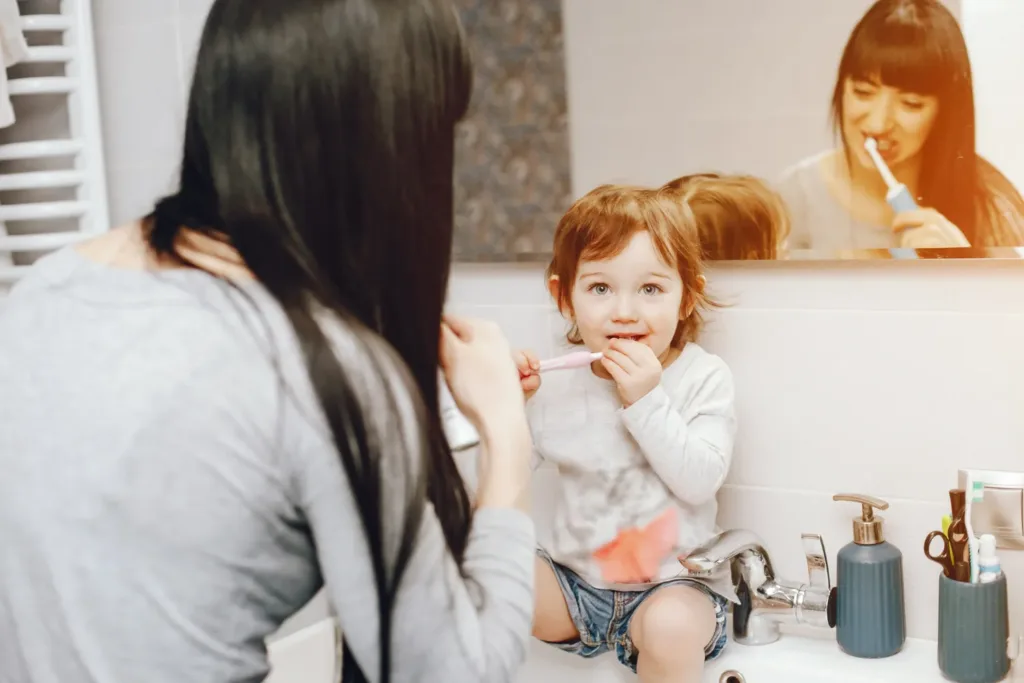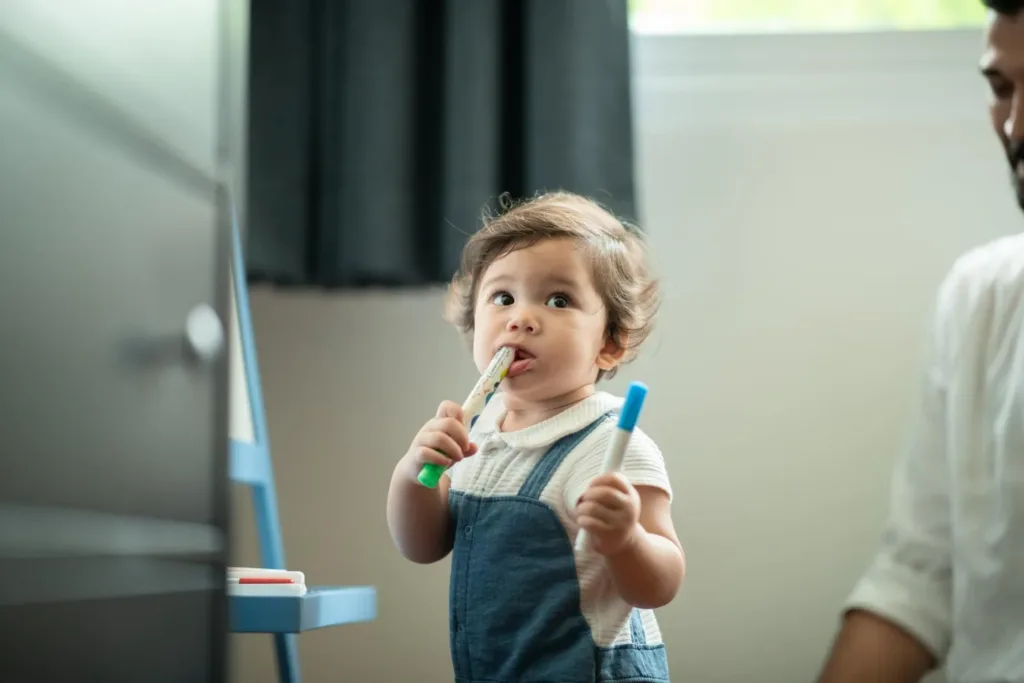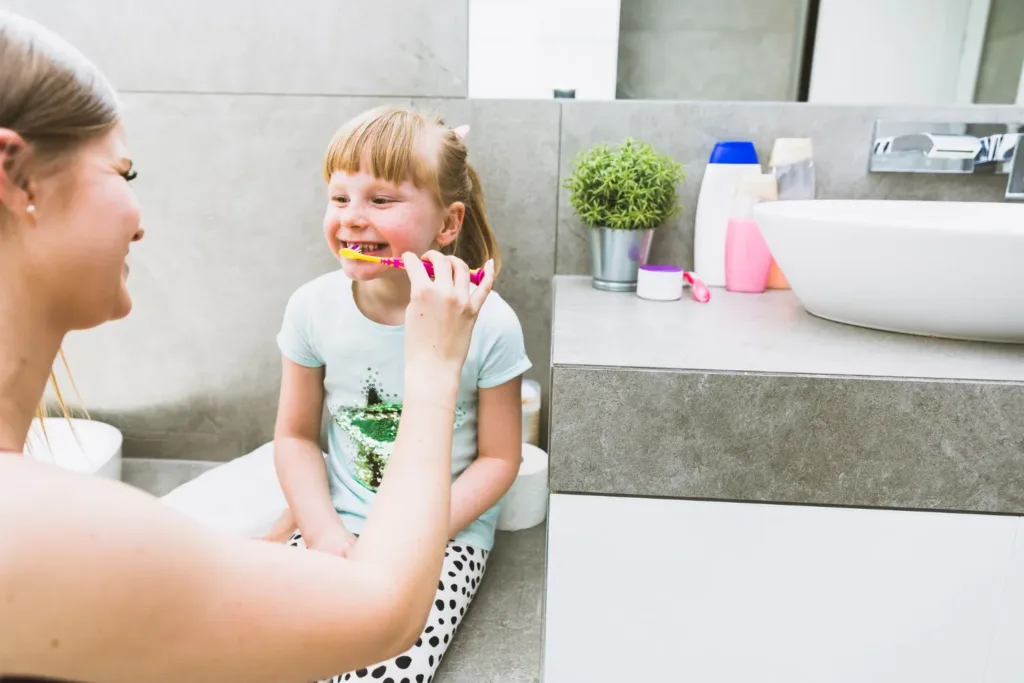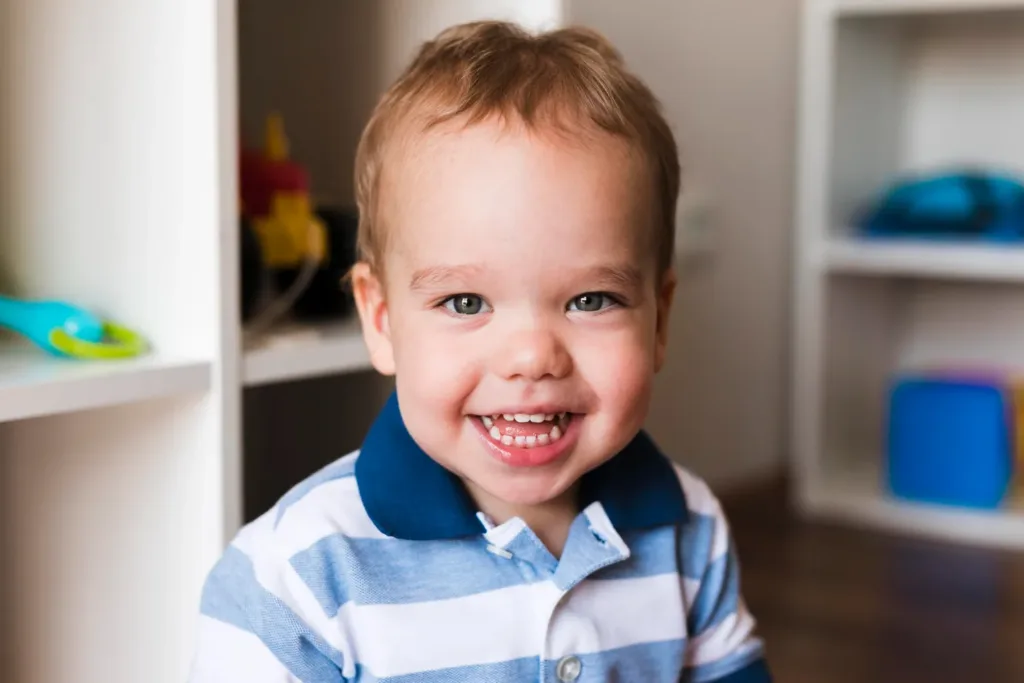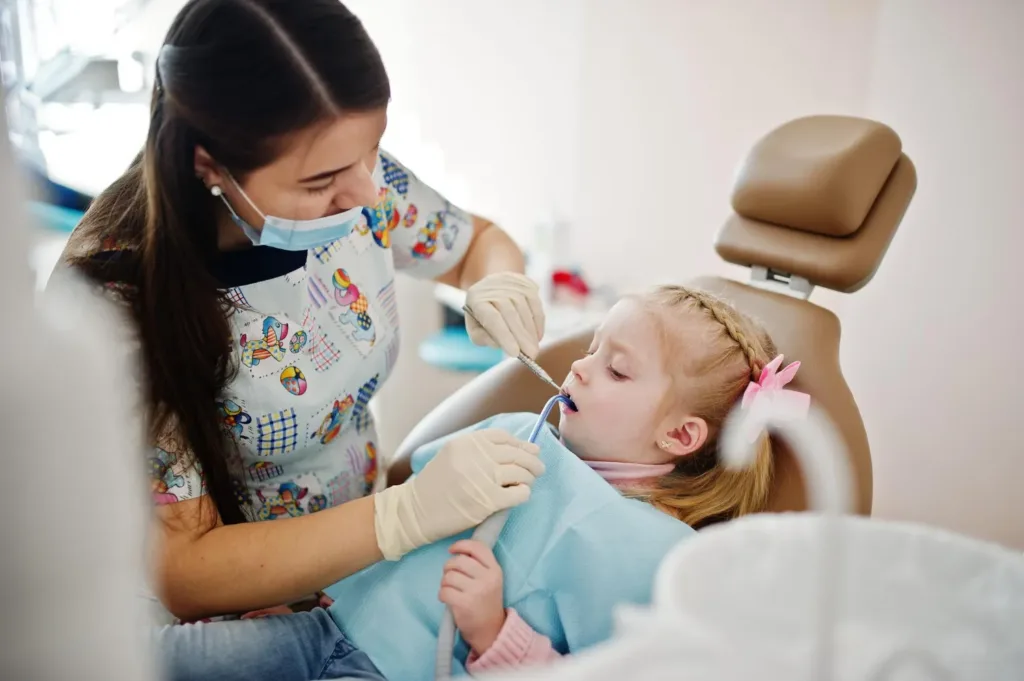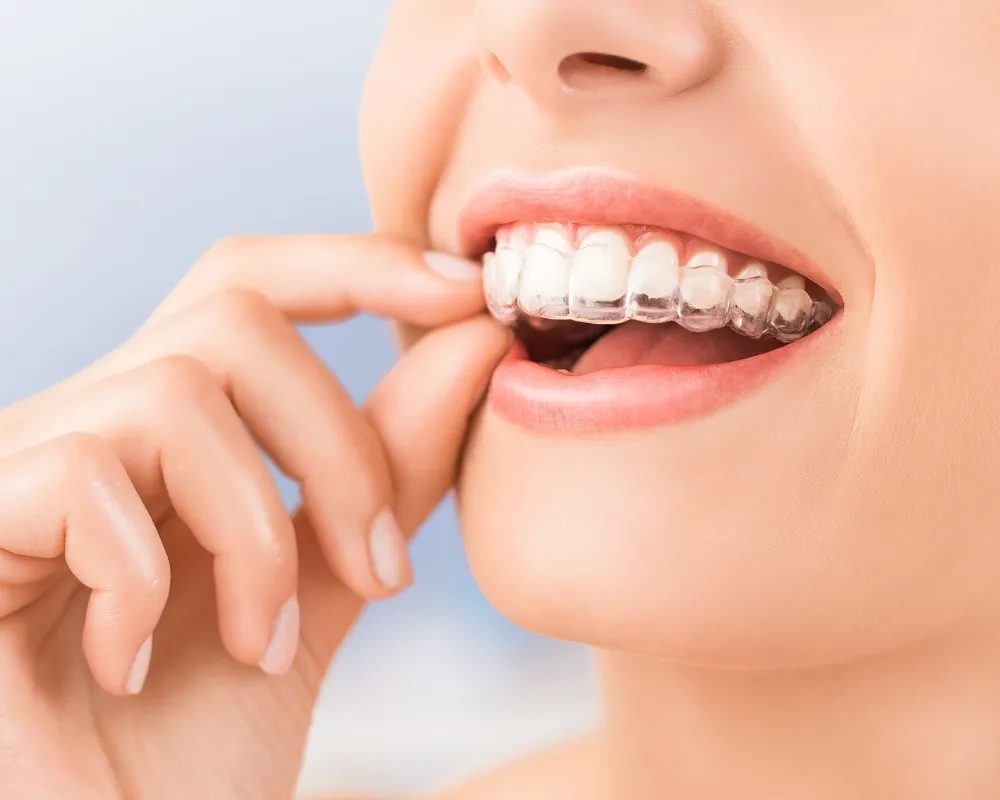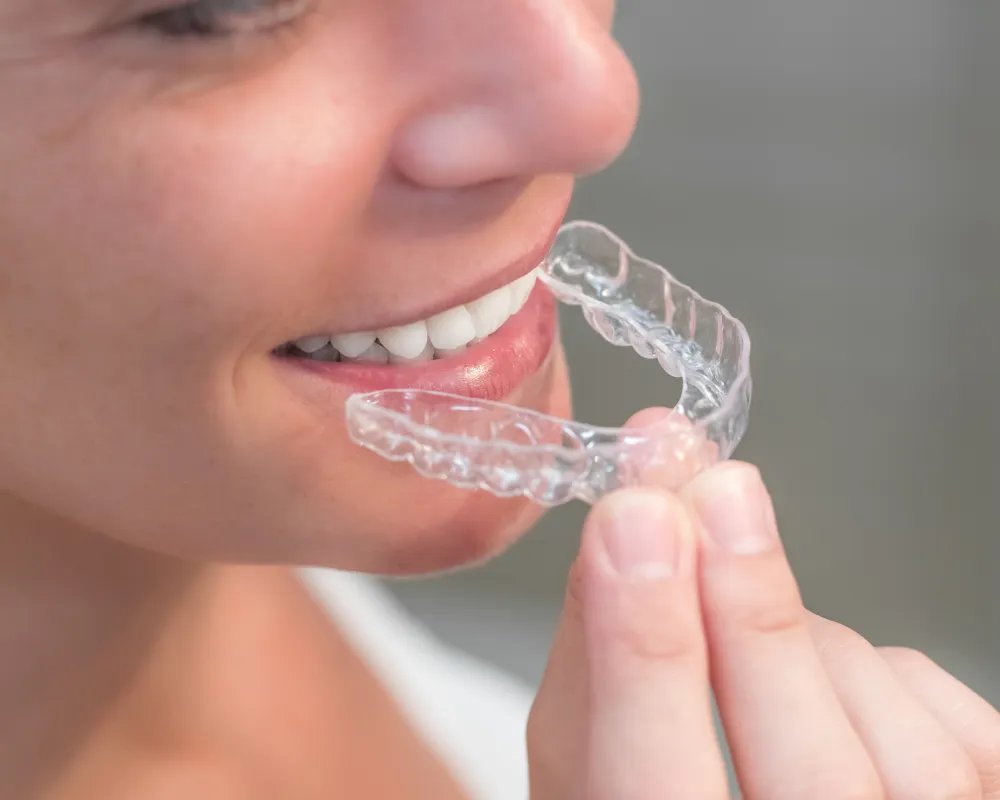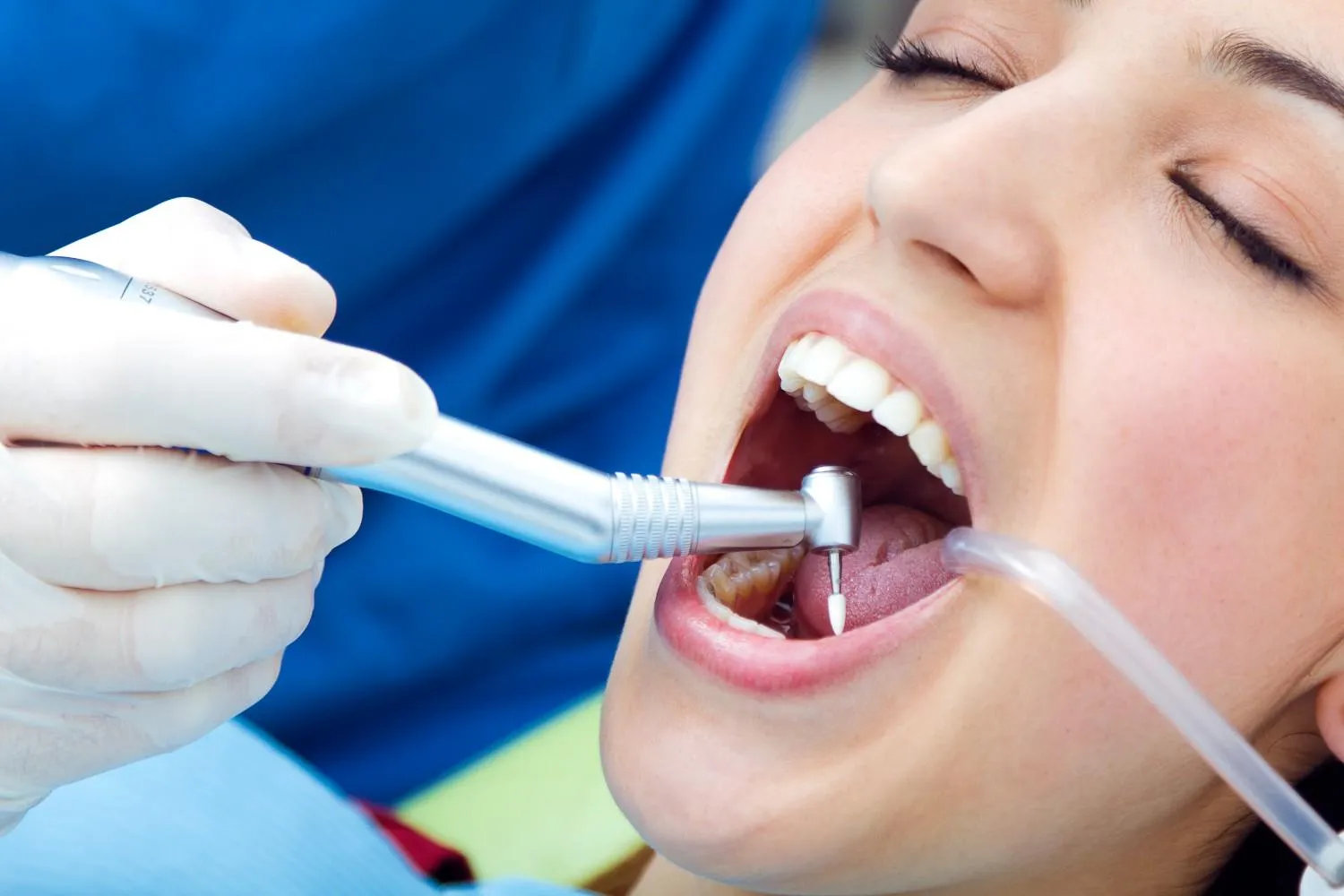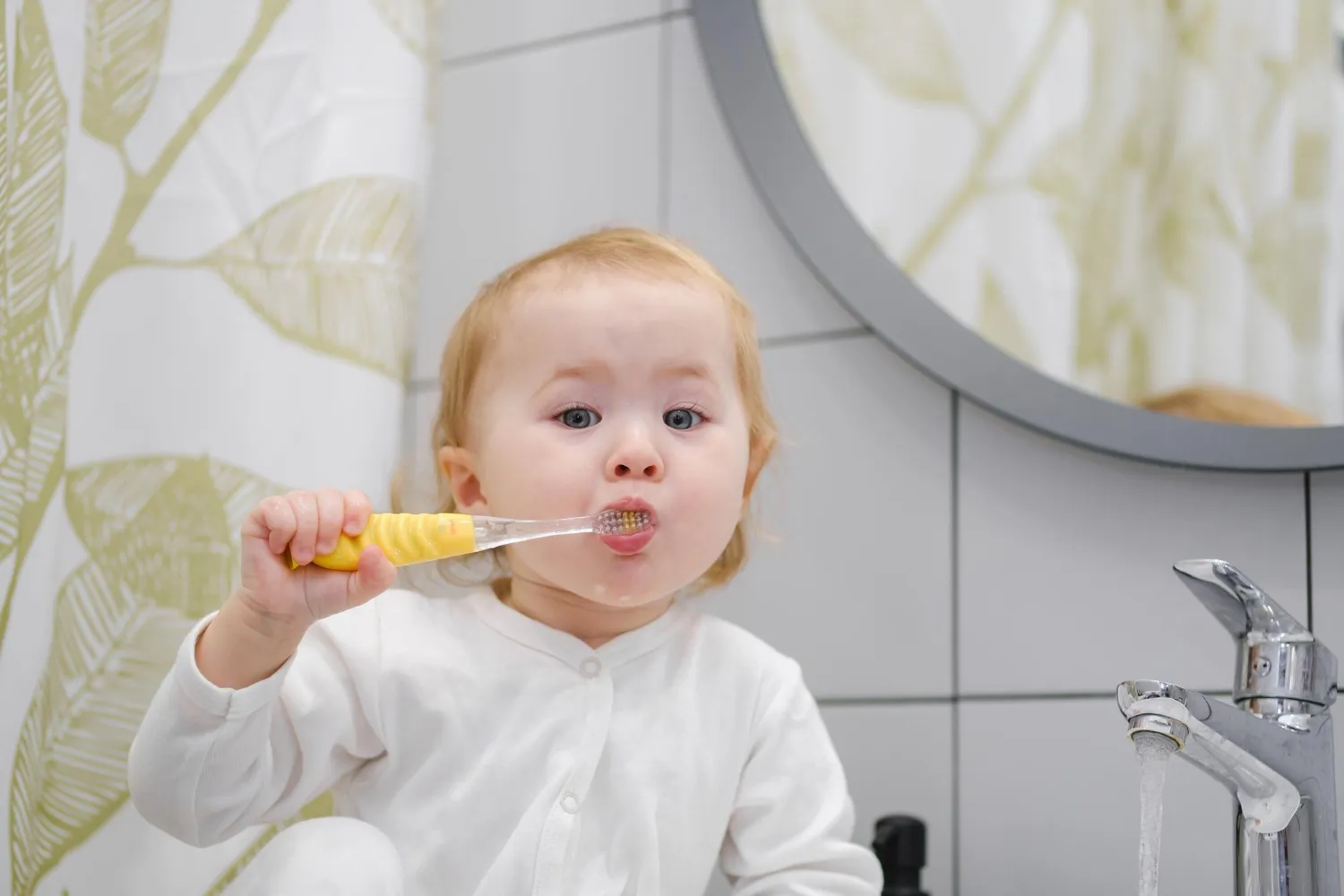
As parents, we want to do everything we can to ensure our baby’s health and well-being. And that includes their dental health. Many parents wonder when do you start brushing infants’ teeth and how to establish good oral hygiene habits early on. The answer is: as soon as those first teeth appear. Starting dental care at the right time can help prevent tooth decay and promote healthy tooth development. In this guide, we’ll discuss when to start brushing infant teeth, effective brushing techniques, and essential tips for maintaining your little one’s oral health. Get ready for your baby’s first brush and lay the foundation for a lifetime of healthy smiles.
Understanding the Importance of Early Dental Care
Starting oral hygiene practices during infancy is crucial for a number of reasons. It helps in preventing the onset of harmful bacteria which can result in early childhood caries or baby bottle tooth decay. Introducing your baby to oral care routines early on aids in making these practices a normal part of their daily life as they grow. The importance of initiating dental care from infancy cannot be overstated—it lays the groundwork for a lifelong commitment to oral health. By doing so, you are not just focusing on the act of brushing but fostering an environment that values overall oral hygiene from the beginning. This proactive approach is essential in safeguarding your child’s dental health and ensuring they are comfortable and familiar with oral care practices as they develop.
The Best Time to Start Brushing
The question of when do you start brushing infants’ teeth often lingers in the minds of many new parents eager to kickstart their baby’s oral hygiene regimen. The right time to begin brushing infants’ teeth is as soon as the first tooth erupts. Typically, this significant milestone happens around the age of six months, but it can vary from child to child. From this moment forward, it’s crucial to incorporate infant teeth brushing into your daily routine to combat the buildup of plaque and prevent tooth decay. Brush infant teeth gently with a soft, infant-sized toothbrush or terry cloth on a finger. Only introduce a rice-sized smear of fluoride toothpaste once your child is able to spit it out This early introduction to brushing not only helps in maintaining the cleanliness of your baby’s first teeth but also sets a solid foundation for future oral health practices. By starting these habits early, you’re ensuring that your child’s oral care becomes a seamless part of their daily life.
Choosing the Right Tools for the Task
Selecting the proper equipment for brushing your infant’s teeth is crucial to their oral health journey. Opt for a toothbrush that’s specifically designed for infants, featuring a small head and soft bristles to gently clean without causing irritation. Initially, plain water will suffice for brushing. However, as more teeth emerge, introduce a tiny dab of fluoride toothpaste, about the size of a grain of rice, to help protect against cavities. It’s important to choose a toothpaste that’s formulated for children, with flavors that are appealing to young ones and a minimalistic ingredient list to ensure safety. This careful selection of tools not only aids in effective cleaning but also makes the brushing experience pleasant for your baby, encouraging them to embrace this vital routine with ease.
Mastering Effective Brushing Techniques
Mastering effective brushing techniques is essential when you begin the journey of oral care with your infant. The process of brushing infants’ teeth should be gentle, yet thorough, to ensure the removal of plaque without causing discomfort. When to start brushing infant teeth coincides with the emergence of the first tooth, a milestone that signals it’s time to introduce a soft-bristled brush. Use gentle, circular motions to clean the teeth and gums, being careful to cover all surfaces.
Positive Brushing for Babies
Remember, the goal is to make this a positive experience for your baby, so keeping the mood light and engaging is key. When do you start brushing infants’ teeth is as crucial as how you do it. Establishing a routine early on not only sets the stage for effective oral hygiene but also helps your infant become accustomed to the sensation of brushing, making it an accepted part of their daily routine. By focusing on these techniques, you’re not just cleaning your baby’s teeth; you’re also teaching them the importance of oral care in a way that’s manageable and comfortable for both of you.
Preventing Tooth Decay in Infants
Preventing tooth decay in infants is pivotal in ensuring a lifetime of dental health. From the moment the first tooth appears, the foundation for oral hygiene practices is laid, emphasizing the significance of brushing infants’ teeth regularly. When do you start brushing infants’ teeth? The journey begins with the eruption of the first tooth, marking the ideal time to introduce gentle brushing routines. Using a soft, infant-sized toothbrush, engage in gentle brushing to remove plaque and bacteria that can lead to decay. It’s not just about the act of brushing but creating a consistent routine that incorporates infant teeth brushing effectively.
Infant Dental Care Essentials
Emphasizing the need for minimal fluoride toothpaste and ensuring all surfaces of the teeth and gums are gently cleaned can significantly reduce the risk of cavities. Early dental care, including the practice to brush infant teeth, plays a crucial role in preventing tooth decay. By instilling these habits from the start, parents can protect their infant’s oral health, setting the stage for strong and healthy teeth.
The Role of Nutrition in Infant Oral Health
The dietary choices you make for your infant play a significant role in their oral health and the development of strong, healthy teeth and gums. To minimize the risk of tooth decay, it’s crucial to limit the intake of sugary snacks and beverages. These can erode tooth enamel and lead to cavities. Instead, focus on providing a balanced diet rich in vegetables, fruits, and dairy products. These foods offer essential vitamins and minerals that promote oral health, contributing to the overall strength and resilience of your baby’s emerging teeth and gums. Introducing these nutritious options early on not only supports oral health but also sets the stage for healthy eating habits as your child grows.
Establishing a Routine and Overcoming Challenges
Establishing a routine for brushing infants’ teeth can pose unique challenges, particularly when initially figuring out when do you start brushing infants’ teeth and how to make it a seamless part of your day. Persistence is key in integrating oral care into your baby’s daily habits, aiming for brushing sessions after the first feeding in the morning and right before bedtime. Infants might resist having their teeth brushed due to unfamiliarity with the sensation. To mitigate this, make brushing a fun and engaging activity by singing songs, using colorful toothbrushes, or even demonstrating by brushing your teeth alongside them.
Overcoming these hurdles is about adapting and finding what works best for your child, ensuring the habit sticks and becomes a non-negotiable part of their health routine. Remember, the goal is to build a positive association with brushing, turning potential challenges into opportunities for bonding and learning.
Additional Tips for Maintaining Infant Oral Health
In addition to the established routine of brushing your infant’s teeth, there are further measures you can take to enhance their oral health.
Monitoring Fluoride Levels
One crucial step is monitoring the fluoride levels in your drinking water. Fluoride is beneficial for preventing tooth decay, but the right balance is key. If your local water supply lacks fluoride, consult your pediatric dentist about fluoride supplements.
Another tip involves being mindful of teething. As your infant begins teething, offer clean, chilled teething rings or cold, wet washcloths. These can soothe their gums and are safe for infants, unlike sugary teething biscuits or hard objects that could harm emerging teeth.
Regular Dental Visits
Furthermore, scheduling your baby’s first dental visit by their first birthday or when the first tooth appears is vital. This visit not only checks for any early signs of problems but also sets the stage for when do you start brushing infants teeth with professional guidance. Regular dental visits should follow, fostering a comfortable relationship with dental care from a young age. These additional steps complement daily brushing, fortifying your infant’s oral health and contributing to their overall well-being.
Laying the Foundation for a Lifetime of Healthy Smiles
Embarking on early dental care is a pivotal move in safeguarding your baby’s smile for the years to come. By adopting the strategies highlighted throughout this guide, you’re not just steering clear of potential dental problems but also instilling in your little one the value of maintaining oral hygiene. It’s about more than just the routine of brushing; it’s cultivating an environment where oral health is given priority from the very start. With consistent care, patience, and the right approach, you’re ensuring that your child’s dental health is on the right track, fostering habits that will benefit them well into adulthood. This journey is an investment in their wellbeing, promising a future filled with bright and healthy smiles.

